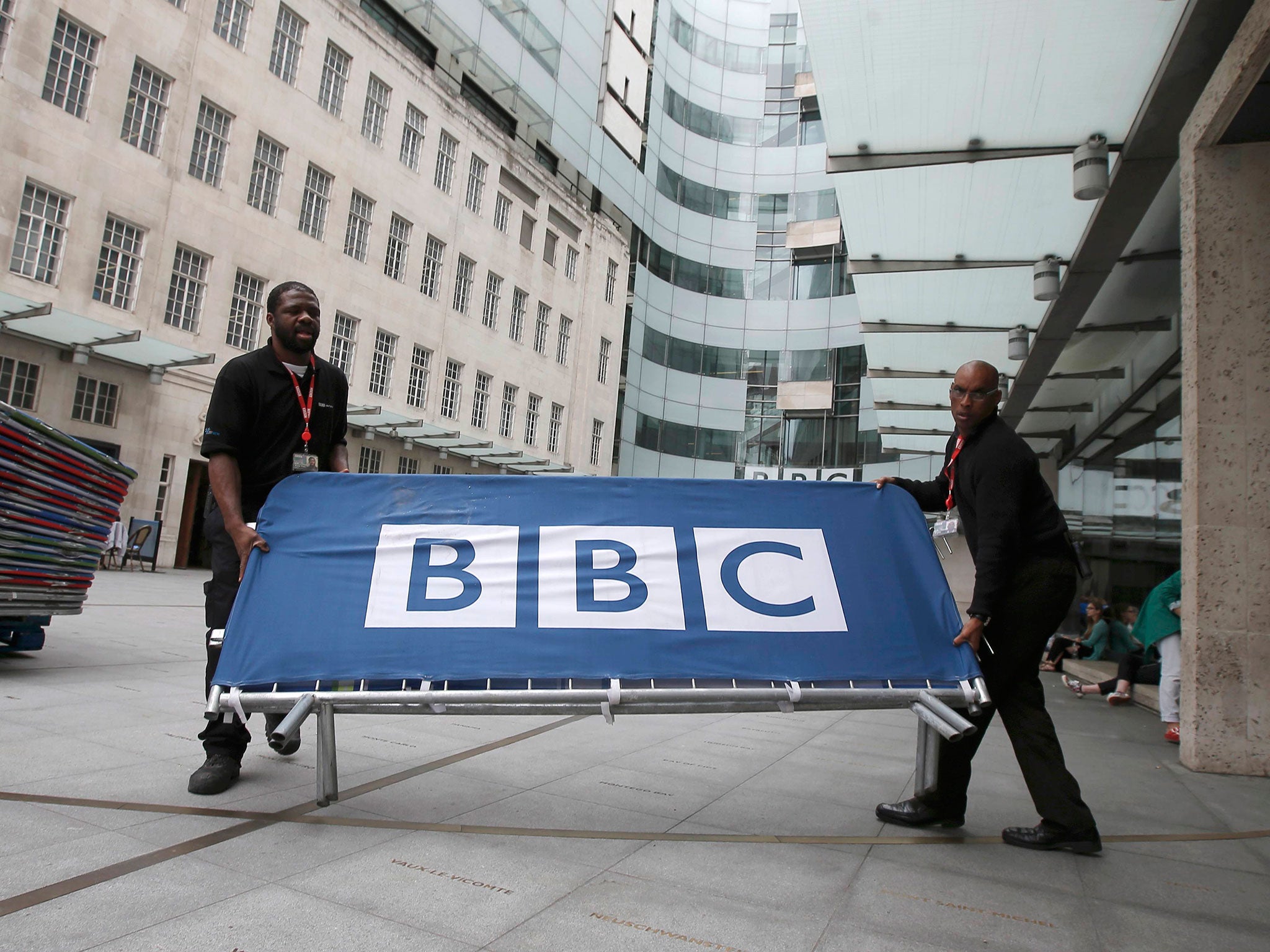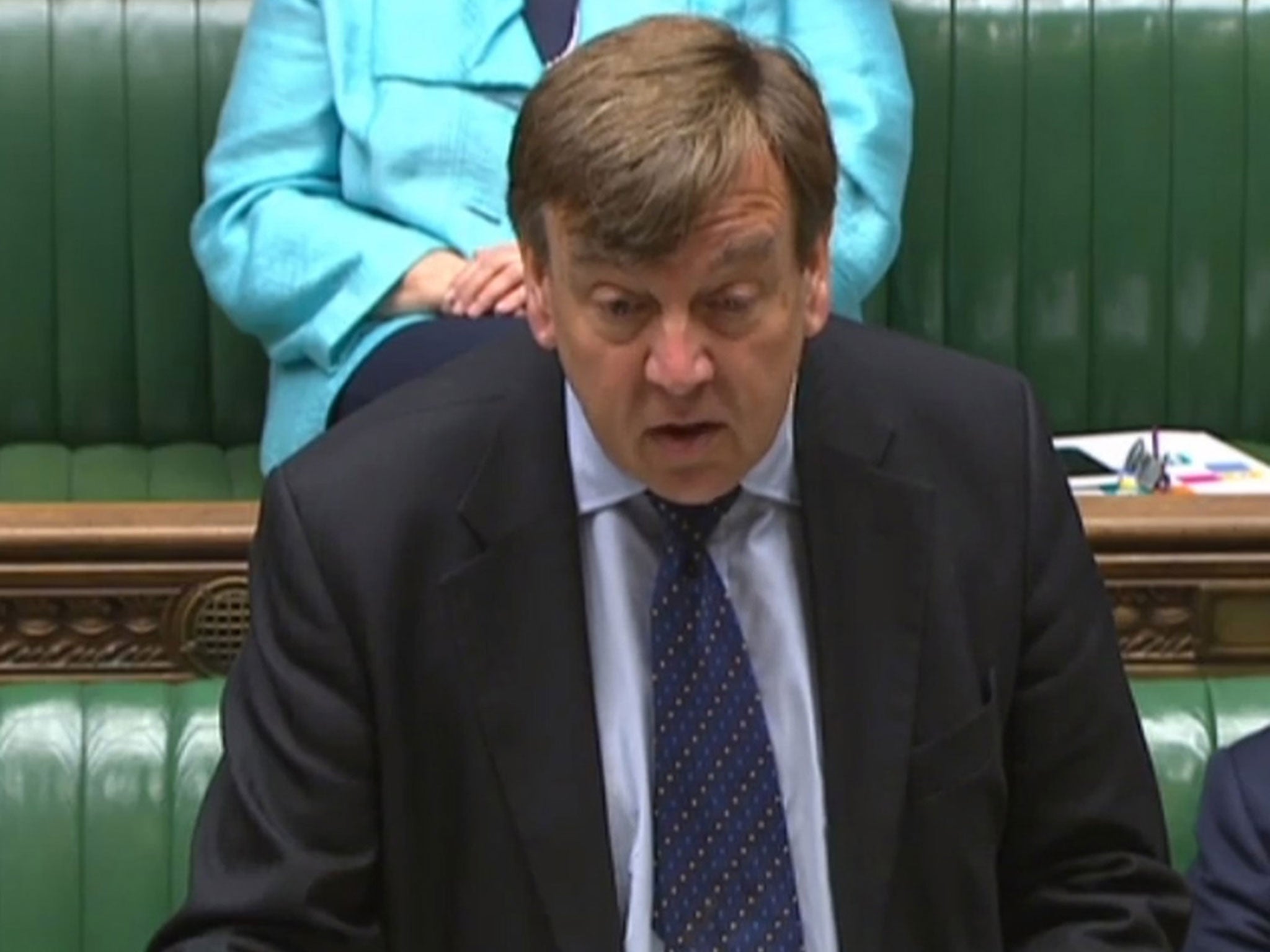BBC hits back after Government calls for 'smaller, cheaper' national broadcaster
Culture Secretary questions whether BBC can be 'all things to all people'

Your support helps us to tell the story
From reproductive rights to climate change to Big Tech, The Independent is on the ground when the story is developing. Whether it's investigating the financials of Elon Musk's pro-Trump PAC or producing our latest documentary, 'The A Word', which shines a light on the American women fighting for reproductive rights, we know how important it is to parse out the facts from the messaging.
At such a critical moment in US history, we need reporters on the ground. Your donation allows us to keep sending journalists to speak to both sides of the story.
The Independent is trusted by Americans across the entire political spectrum. And unlike many other quality news outlets, we choose not to lock Americans out of our reporting and analysis with paywalls. We believe quality journalism should be available to everyone, paid for by those who can afford it.
Your support makes all the difference.The BBC is on a collision course with ministers after the Government took the first step towards creating a smaller, cheaper national broadcaster.
In a fiercely worded response, the Corporation warned that the move would be bad for Britain as it would result in “a much diminished, less popular” service for viewers and listeners.
John Whittingdale, the Culture Secretary, said a wide-ranging review of the BBC’s future would question whether it should continue to be “all things to all people” and whether it was right to spend large sums on populist output such as BBC1’s The Voice.
He also raised the prospect of the licence fee ultimately being replaced by a subscription system to reflect the huge technological changes over the last decade.
A Green Paper published on Thursday, leading up to the renewal of the BBC’s Charter at the end of 2016, heralds the biggest shake-up of the broadcaster for a generation. It suggests that the Corporation’s rapid growth in recent years should be reversed, with a stronger focus on its public service remit, adding: “A smaller BBC could see the public pay less for their TV licence and would also be likely to have a reduced market impact.”
The review will consider three options for changing BBC funding – reforming the £145.50 licence fee, a levy on households and a mixture of fee and levy. Allowing advertisements has been ruled out.
Mr Whittingdale criticised the licence fee as “regressive” and said a full subscription system should be considered as a long-term replacement.

He said the Corporation’s reach had grown enormously in 20 years to become the world’s largest public service broadcaster with nine television channels, five national and 40 local radio stations and a “huge online presence”.
The review would “look at whether that particular range of services best serves licence-fee payers”, the Culture Secretary told the Commons.
“With so much more choice in what to consume and how to consume it, we must at least question whether the BBC should try to be all things to all people… or if it should have a more precisely targeted mission.” He said the review would examine whether the quantity of the BBC’s output was hitting its commercial rivals. Ministers have already raised concerns that the Corporation’s website is undermining the viability of newspapers and their websites.
In response, the BBC accused the Government of ignoring viewers and raising doubts over the future of Radio 1 and 2 and programmes such as Strictly Come Dancing and the Great British Bake Off.
“We believe this Green Paper would appear to herald a much diminished, less popular, BBC. That would be bad for Britain and would not be the BBC that the public has known and loved for over 90 years,” it said. “It is important that we hear what the public want. It should be for the public to decide whether programmes like Strictly or Bake Off, or stations like Radio 1 or 2, should continue.”
Mr Whittingdale said the review would look at three options for reforming governance, including reforming the existing BBC Trust, creating a new stand-alone oversight body or moving regulation to Ofcom, each of which he said had “pros and cons”.
The shadow Culture Secretary, Chris Bryant, told Mr Whittingdale: “You say we should consider the matter of the universality of the BBC, but surely the golden thread that runs through the concept of the BBC is that we all pay in and we should all get something out.”
Join our commenting forum
Join thought-provoking conversations, follow other Independent readers and see their replies
Comments